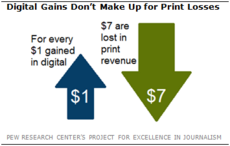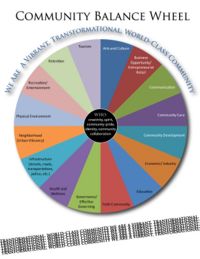Difference between revisions of "Rji-pivot-resources"
From IVP Wiki
(→TECHNOLOGY: Eight themes on the future of journalism: Google's Gingras and Bharat talk / April 12, 2012, NiemanLab.org) |
(→TECHNOLOGY: Eight themes on the future of journalism: Google's Gingras and Bharat talk / April 12, 2012, NiemanLab.org) |
||
| Line 72: | Line 72: | ||
====[http://www.niemanlab.org/2012/04/googles-richard-gingras-8-themes-that-will-help-define-the-future-of-journalism/ <B>TECHNOLOGY:</b> Eight themes on the future of journalism: Google's Gingras and Bharat talk] / April 12, 2012, NiemanLab.org==== | ====[http://www.niemanlab.org/2012/04/googles-richard-gingras-8-themes-that-will-help-define-the-future-of-journalism/ <B>TECHNOLOGY:</b> Eight themes on the future of journalism: Google's Gingras and Bharat talk] / April 12, 2012, NiemanLab.org==== | ||
*In two recent talks, the head of news products at Google Inc. spoke on [http://gigaom.com/2012/05/12/googles-head-of-news-newspapers-are-the-new-yahoo/ May 11 at the Nieman Foundation in Cambridge, Mass.,] and April 26 [http://paidcontent.org/2012/04/26/journalism/ Madrid,] painting a clear vision for how technology can and likely will reinvent journalism by rethinking the "story." Some of Richard Gingras' points: Content is king, less is more, forget the homepage, find the niche. And [http://civic.mit.edu/blog/mstem/the-head-of-google-news-on-the-future-of-news at Cambridge,] he talks about the need for evergreen background pages which provide context for ongoing stories. He calls for constant innovation, and giving reporters (the newsroom's most valuable asset) more tools. Gingras' father was production manager of <i>The Providence Journal.</i> Meanwhile, [http://www.poynter.org/latest-news/top-stories/175859/krishna-bharat-news-industry-futuremust-hire-restless-agents-of-change/ in Paris,] Google News inventor Krishna Bharat urges news organizations to hire "restless agents of change." | *In two recent talks, the head of news products at Google Inc. spoke on [http://gigaom.com/2012/05/12/googles-head-of-news-newspapers-are-the-new-yahoo/ May 11 at the Nieman Foundation in Cambridge, Mass.,] and April 26 [http://paidcontent.org/2012/04/26/journalism/ Madrid,] painting a clear vision for how technology can and likely will reinvent journalism by rethinking the "story." Some of Richard Gingras' points: Content is king, less is more, forget the homepage, find the niche. And [http://civic.mit.edu/blog/mstem/the-head-of-google-news-on-the-future-of-news at Cambridge,] he talks about the need for evergreen background pages which provide context for ongoing stories. He calls for constant innovation, and giving reporters (the newsroom's most valuable asset) more tools. Gingras' father was production manager of <i>The Providence Journal.</i> Meanwhile, [http://www.poynter.org/latest-news/top-stories/175859/krishna-bharat-news-industry-futuremust-hire-restless-agents-of-change/ in Paris,] Google News inventor Krishna Bharat urges news organizations to hire "restless agents of change." | ||
| − | *See also: [http://www.niemanlab.org/2012/03/dave-winer-heres-why-every-news-organization-should-have-a-river/ Dave Winer: Curating the public rivers -- the new news-organization task] (March 2012, NiemanLab.org<br> | + | *See also: [http://www.niemanlab.org/2012/03/dave-winer-heres-why-every-news-organization-should-have-a-river/ Dave Winer: Curating the public rivers -- the new news-organization task] (March 2012, NiemanLab.org)<br>, who writes: "Therefore, the challenge for news organizations has been, for the last couple of decades, to learn how to incorporate the experience of these users and their new publishing tools, into their product -- the news." |
| − | |||
| − | users and their new publishing tools, into their product -- the news." | ||
[[Image:Stin.jpg|110px|thumb|right|Stijn Debrouwere]] | [[Image:Stin.jpg|110px|thumb|right|Stijn Debrouwere]] | ||
Revision as of 02:21, 13 June 2012
Contents
- 1 RJI Pivot Point-Chicago
- 1.1 Draft of resource links
- 1.2 WHITE PAPERS, LONGER ARTICLES AND BOOKS
- 1.2.1 COMMUNITY: Pivot Point participant Adam Clayton Powell III's 2010 report: Reinventing Local News
- 1.2.2 COMMUNITY: Assessing community information needs -- the Knight/Aspen reports / Oct. 2011 (Amy Garmer)
- 1.2.3 RESEARCH: "From Paper to Persona: Sustaining Journalism in the Attention Age" / Aug. 2011 (Densmore)
- 1.2.4 RESEARCH: Steinle-Brown visit-profit 50 U.S. newspapers to assess future / April 5, 2012, American Journalism Review)
- 1.2.5 REVENUE: The Search for a New Business Model: An in-depth look at how newspapers are faring trying to build digital revenue / (March 5, 2012, Pew Research Center)
- 1.2.6 "The big issue . . . is who gets the right to deliver the time and location sensitive message. it won't be everybody that gets the right to come into my pocket and beep me because I just walked into the mall . . . So how do we, as the newspaper in town, do what we need to do now to make sure a year or two years down the road, we are the ones with permission and a trusted relationship with the consumer."
- 1.2.7 ARTICLE: The Jig is Up: Time to Get Past Facebook and Invent a New Future / April 18, 2012 (Alex Madrigal at The Atlantic)
- 1.2.8 BOOK: I Live in the Future & Here's How It Works: Why Your World, Work, and Brain Are Being Creatively Disrupted, Sept. 2010 (Nick Bilton)
- 1.3 SLIDES AND PRESENTATIONS
- 1.3.1 Key studies by the Pew Center on the Internet & Society
- 1.3.2 DEMOGRAPHICS: American Tapestry: The Millennial Generation / (Dec. 6, 2008, Frank N. Magid Associates, Inc.)
- 1.3.3 REVENUE: Forrester researcher James McQuivey on paying for access not content / Feb. 9, 2010 (Densmore)
- 1.3.4 USABILITY: RJI's mobile-media news consumption national survey / April 2012 (Roger Fidler/Mike Jenner)
- 1.4 HIGHLIGHTED LINKS
- 1.4.1 COMMUNITY: SourceMedia's blog -- "Field Guide for Community Builders, May 2012, Ben Smith/Amanda Styron)
- 1.4.2 TECHNOLOGY: Eight themes on the future of journalism: Google's Gingras and Bharat talk / April 12, 2012, NiemanLab.org
- 1.4.3 Pivot Point participant Stijn Debrouwere on replacing journalism / May 4, 2012, stdoute.be blog
- 1.4.4 PRICING: Ken Doctor on the economics of 99-cent pages / April 26, 2012, Ken Doctor, NiemanLab)
- 1.4.5 COLLABORATION: Scripps chief Rich Boehne hopes collaboration in news industry is possible April 15, 2012
- 1.4.6 NETWORKS: Pivot Point participant Buzz Wurzer offers a network "straw man" proposal for newspapers / (May 25, 2012, Buzz Wurzer)
- 1.4.7 ANTITRUST: An antitrust legal scholar explains when competitors can collaborate / (June 25, 2010, Thom Lambert)
- 1.4.8 ENGAGEMENT: In San Diego, what is line between engagement and advocacy? / June 10, 2012 (Picht/Densmore)
- 1.4.9 FORM: Sean Blanda on skeuomorphism and why we need to reinvent the article (May 25, 2012, BlandaBlog)
- 1.4.10 USABILITY: "Skeuomorphic" -- Mobile/tablet/online services should not try to recreate old forms June 10, 2012 (Langeveld)
- 1.4.11 ADVERTISING: Could a Facebook Connect advertising network geotarget local business' ads without local paper? / April 25, 2012, Alex Salkever, StreetFightMag.com
- 1.4.12 AUDIENCE: Digital startup CEO urges legacy media to focus on understanding audience, not just content May 7, 2012, All Things Digital)
- 1.4.13 AUDIENCE: Dan Williams at The Day, New London, Conn. -- audience tuning (Feb. 9, 2012, N.E. News Forum)
- 1.4.14 USABILITY: HTML5, other open technologies doom "issue" approach to tablet services? / June 6, 2012 (Densmore)
- 1.4.15 ECONOMICS: The dilemma of the Washington Post -- as resources shrink, charge or not to charge? / June 10, 2012 (Wurzer-Densmore)
- 1.4.16 PERSONA: Balancing trust vs. 'creep factor' in user relationships / June 10, 2012 (Bill Keller)
- 1.4.17 USABILITY: Microsoft/Harvard researcher Danah Boyd on why news organizations fail to reach young people / April 13, 2012 (Poynter via Holman)
- 1.4.18 PRIVACY:World Wide Web founder Berners-Lee says "demand your data" from Facebook, Google and others / April 18, 2012 (Ian Katz/The Gardian)
- 1.4.19 CURATION: Are content curators the new 'superheros' of the web? / April 16, 2012 (Steven Rosenbaum, FastCompany)
- 1.5 ADDITIONAL POSSIBLY RELEVANT LINKS
RJI Pivot Point-Chicago
Draft of resource links
- Email additions to densmorew@rjionline.org or use this wiki to add them yourself to the page.
- View submitted comments of Pivot Point participants
WHITE PAPERS, LONGER ARTICLES AND BOOKS
COMMUNITY: Pivot Point participant Adam Clayton Powell III's 2010 report: Reinventing Local News
- Also: PDF download
COMMUNITY: Assessing community information needs -- the Knight/Aspen reports / Oct. 2011 (Amy Garmer)
- Beginning in 2008 with the Knight Commission on the Information Needs of Communities, the Aspen Institute's Communications and Society Program has commissioned a series of booklet-format white papers. Each is in a FREE downloadable PDF format with short executive summaries. The three most relevant to Pivot Point are Michael R. Fancher's "Reimagining Journalism: Local News for a Networked World," (download download PDF) Peter Levine's "Civic Engagement and Community Information: Five Strategies to Revive Civic Communication," (PDF) and Richard C. Harwood's "Assessing Community Information Needs: A Practical Guide."
RESEARCH: "From Paper to Persona: Sustaining Journalism in the Attention Age" / Aug. 2011 (Densmore)
- Reynolds Journalism Institute consulting researcher Bill Densmore explains why news organizations must move from a physical-product-centered business to one focused on service -- helping people find the information they need to get through their day and be more engaged citizens. He argues this means helping users with their "personas" -- the demographics and preferences presented to service providers. He cites this as a new business opportunity for news organzations and lays out a scenario for a non-profit Information Trust Association which could transparently establish protocols and business rules for a "shared-user network for trust, identity, privacy and information commerce." (PDF BACKGROUNDER AND COMMENTS ON THE ITA PROJECT)
RESEARCH: Steinle-Brown visit-profit 50 U.S. newspapers to assess future / April 5, 2012, American Journalism Review)
- Most of us have heard that Paul Steinle and Sara Brown, ex-journalism practitioners and professors, took to the roads of America to visit and profile 50 great community dailies. Now they're turning there research into recommendations about what's wrong, what's right and what needs to happen, in the linked AJR article, as well as in a longer paper prepared for delivery in August to the annual AEJMC convention DOWNLOAD PDF.
REVENUE: The Search for a New Business Model: An in-depth look at how newspapers are faring trying to build digital revenue / (March 5, 2012, Pew Research Center)
- In a 27-page report based on an in-depth study of proprietary sales and readership data from 37 U.S. daily newspapers, authors Tom Rosenstiel and Mark Jurkowitz conclude that "digital gains can't make up print loses and papers "are not well positioned to take advantage of ... growth in targeted advertising." The report (download PDF) quotes one executive:
- Why advertisers no longer need media
- Biggest obstacle: The "culture war"
- Industry execs finally talking to each other?
- ‘The future may not be in advertising’
- Focus on functions and values, not tools and procedures
- What about leadership?
- People who figure out the audience will own the future
"The big issue . . . is who gets the right to deliver the time and location sensitive message. it won't be everybody that gets the right to come into my pocket and beep me because I just walked into the mall . . . So how do we, as the newspaper in town, do what we need to do now to make sure a year or two years down the road, we are the ones with permission and a trusted relationship with the consumer."
In an April 24, 2012, discussion at RJI, report authors Rosenstiel and Jurkowitz made these points:
ARTICLE: The Jig is Up: Time to Get Past Facebook and Invent a New Future / April 18, 2012 (Alex Madrigal at The Atlantic)
- The author argues that the elements of social networks -- ratings, photos, networks for 'friends' which ultimately yields valuable information for advertisers -- have run their course. Instead, he argues for new services supported by money from the end users. "More money has got to change hands," he writes, seeking a new wave of transformational Internet technologies.
BOOK: I Live in the Future & Here's How It Works: Why Your World, Work, and Brain Are Being Creatively Disrupted, Sept. 2010 (Nick Bilton)
- Excerpted from the Amazon summary: New York Times technology writer Nick Bilton's book explains how tech is disrupting media, creating the possibility for exciting, engaging experiences, creating the new "consumnivore," a world where immediacy trumps quality and quantity; why social networks, Internet openness and new gadgets are becoming the foundation for anchoring communities and taming information overload; why they are centered in "me" -- calling for a new approach to shaping content and why people pay for experiences not content and why great storytelling and extended relationships will prevail and enable businesses to engage with customers in new ways that go beyond merely selling information, instead creating unique and meaningful experiences.
SLIDES AND PRESENTATIONS
Key studies by the Pew Center on the Internet & Society
- The Pew Center on the Internet & Society has been conducting public surveys and compiling demographic and usage studies for more than a decade on Internet usage, primarily in the United States, and much of the work of Kristin Purcell and Lee Raine has focused on news usage. Here are links to some recent studies most relevant to the work of RJI-Pivot Point-Chicago:
- Understanding local-news enthusiasts / Local news usage and creation / News in a networked world *How people learn about their community / The citizen / By the numbers
- How we use social media / The Internet's social side / Advertising and transactions
- BOOK: Networked individualism Also: view video podcast
DEMOGRAPHICS: American Tapestry: The Millennial Generation / (Dec. 6, 2008, Frank N. Magid Associates, Inc.)
- A 2008 presentation to the Carnegie-Knight Initiative for the Future of Journalism by Lindsay Schutte of Frank N. Magid Associates Inc., separates the Boomer, Gen X and Millenial generations, describing their use of social media and other attributes.
REVENUE: Forrester researcher James McQuivey on paying for access not content / Feb. 9, 2010 (Densmore)
- In 10 slides, Boston-based Forrester researcher James McQuivey uses the example of his own family budget to illustrate that users pay for access to content rather than the content itself. How do we take this fact into consideration as we reinvent the form and delivery of news? Does this mean that content companies that are just selling content (without an associated curation/personalization service) are heading toward oblivion? Or can timely, highly unique content command user payment on its own?
REVENUE: What the Newspaper Association of America recommended in 2008
- To learn from (and not repeat) history, take a look at this 31-page slide deck report for the Newspaper Association of America will recommended online paid strategies. How much of this is relevant today; how much would be considered irrelevant or wrong?
USABILITY: RJI's mobile-media news consumption national survey / April 2012 (Roger Fidler/Mike Jenner)
- Reynolds Journalism Institute's Roger Fidler has been championing tablet technologies, and now studying their use, for a decade at RJI. In 18 slides packed with data, Fidler profiles U.S. tablet and smart-phone usage. Fidler's deck is followed by 18 slides by J-Mizzou Prof. Mike Jenner reporting the tablet and mobile application efforts of U.S. dailies and weeklies.
HIGHLIGHTED LINKS
COMMUNITY: SourceMedia's blog -- "Field Guide for Community Builders, May 2012, Ben Smith/Amanda Styron)
- In Cedar Rapids, Iowa, the Gazette Co., owner of the legacy daily and TV station, has formed SourceMedia to create new forms of community-building services.
TECHNOLOGY: Eight themes on the future of journalism: Google's Gingras and Bharat talk / April 12, 2012, NiemanLab.org
- In two recent talks, the head of news products at Google Inc. spoke on May 11 at the Nieman Foundation in Cambridge, Mass., and April 26 Madrid, painting a clear vision for how technology can and likely will reinvent journalism by rethinking the "story." Some of Richard Gingras' points: Content is king, less is more, forget the homepage, find the niche. And at Cambridge, he talks about the need for evergreen background pages which provide context for ongoing stories. He calls for constant innovation, and giving reporters (the newsroom's most valuable asset) more tools. Gingras' father was production manager of The Providence Journal. Meanwhile, in Paris, Google News inventor Krishna Bharat urges news organizations to hire "restless agents of change."
- See also: Dave Winer: Curating the public rivers -- the new news-organization task (March 2012, NiemanLab.org)
, who writes: "Therefore, the challenge for news organizations has been, for the last couple of decades, to learn how to incorporate the experience of these users and their new publishing tools, into their product -- the news."
Pivot Point participant Stijn Debrouwere on replacing journalism / May 4, 2012, stdoute.be blog
- Stijn Debrouwere works with The Gazette Co., of Cedar Rapids, Iowa, to create websites that "encourage exploration, tease out the context behind every story nad have the rich structure and metadata that's needed for repurposing across platforms." In this must-read personal blog post, "Fungible," he asserts that journalism is being replaced by niche websites, alternate, socially-mediated content and offers, at the end, a prescription for "How to Survive."
PRICING: Ken Doctor on the economics of 99-cent pages / April 26, 2012, Ken Doctor, NiemanLab)
- In a physical-product world, producers price their product when it goes out the door into the marketplace; differentiation to end users is difficult. On the web and mobile, all kinds of pricing experiments and variations are possible when the digital service has no fixed form and can be sold just in time to a unique user. Apple proved the value of the 99-cent song. In this NiemanLab.org blog post, news industry veteran-turned-analyst considers pricing options. In Minneapolis, the Star Tribune is experimenting with variable-priced product bundles.
COLLABORATION: Scripps chief Rich Boehne hopes collaboration in news industry is possible April 15, 2012
- In an inteview with the NetNewsCheck.com website, the president/CEO of Scripps newspapers "hopes" for collaboration among newspaper groups; and explains why different platforms need different solutions (but shared content).
NETWORKS: Pivot Point participant Buzz Wurzer offers a network "straw man" proposal for newspapers / (May 25, 2012, Buzz Wurzer)
- Former daily newspaper advertising executive and new-media strategist Buzz Wurzer offers a three-page, bullet-point summary of the core issues and key necessary action steps for newspapers in this PDF download. He summarizes the old and new information content models required, lists key user local and general information needs, and suggests a combined local-national network to address them.
ANTITRUST: An antitrust legal scholar explains when competitors can collaborate / (June 25, 2010, Thom Lambert)
- It's a question of intent. In a 40-minute talk delivered at RJI-Mizzou in June, 2010, antitrust-law expert Thom Lambert explains case-law precedents in which collaboration by competitors was held to be not anticompetitive or in restraint of trade. Would this hold true for an Information Trust Association?
ENGAGEMENT: In San Diego, what is line between engagement and advocacy? / June 10, 2012 (Picht/Densmore)
- New York Times media report David Carr examines the new relationship of the San Diego daily to its community, now that its publisher is a real-estate developer who actively, publicly and without apologies, is championing issues of personal interest. How is this different from Bill Loeb and the Manchester Union Leader a generation ago? Is this the new "engagement" with the public? Or is it something different?
FORM: Sean Blanda on skeuomorphism and why we need to reinvent the article (May 25, 2012, BlandaBlog)
- In Philadelphia, Sean Blanda of TechnicallyMedia describes who "we need to reinvent the article." A few points: Some content never dies, and therefore need not be in a timely article, but simply linkable from current news accounts. The atomic unit of news is the fact. Accounts should allow for instant feedback. See also: Jeff Jarvis' "News Articles as Assets and Paths".
USABILITY: "Skeuomorphic" -- Mobile/tablet/online services should not try to recreate old forms June 10, 2012 (Langeveld)
- This post is specifically aimed at some of Apple's faux reality UI designs such as realistic-looking book pages, bookshelves as indexes to reading content, etc. (something Amazon does as well on the Kindle Fire). But there is a larger message here which is that attempting to translate traditional forms into digital spaces (or to replicate rather than recreate any design convention from an old medium to a new one) is a mistake from the get go. So, touch-tone phones don't look like dial phones, digital watches are not made with analog hands, etc. We know that the newspaper business made this mistake big time in replicating printed news reading on the web. Newspaper paywalls, as currently structured, are attempts to translate physical home delivery to the web. Magazines are still trying to sell "issues" rather than news streams. Etc. The challenge at PivotPoint is to develop ideas that are not skeuomorphic (as defined in the post), not just in terms of UI design, but in terms of complete content delivery concepts. Things like Tapin Bay Area fit this bill. I think it's a constraint we need to put into the process for PivotPoint: let's not fall into the trap of translating stuff from one medium to another. Let's invent stuff that's native to the digital technology of the 21st C, just as physical newspapers were native to the mechanical technologies of the 19th C. Chuck Peters comments: "I liked this article, and particularly liked the last line - 'At the end of the day, there's always a temptation to go with the familiar, but the real value is going to be found elsewhere.' "
ADVERTISING: Could a Facebook Connect advertising network geotarget local business' ads without local paper? / April 25, 2012, Alex Salkever, StreetFightMag.com
- A former technology editor of BusinessWeek.com speculates about the potential that Facebook could use its Facebook Connect network of users to sell geotargetted advertising to local businesses, While newspapers cooperated with The Yahoo Network for a similar purpose, does Facebook have enough users to bypass the local news organization altogether as a partner? How could the local paper or broadcaster compete?
AUDIENCE: Digital startup CEO urges legacy media to focus on understanding audience, not just content May 7, 2012, All Things Digital)
- Ben Elowitz is cofounder/CEO of Wetpaint, a next-generation media platform company. He says media organizations are putting too much effort into content management and not enough into audience management. He says focus on insights, channel selection and date for optimization of content, packaging and timing.
AUDIENCE: Dan Williams at The Day, New London, Conn. -- audience tuning (Feb. 9, 2012, N.E. News Forum)
- In New London, Conn., the daily paper hired Dan Williams from the New York Times Co. to begin a serious audience-development effort. In a talk to the New England Newspaper & Press Association convention in February, The Day's publisher Gary Farrugia explains Williams' work.
USABILITY: HTML5, other open technologies doom "issue" approach to tablet services? / June 6, 2012 (Densmore)
- Digiday writer Rahul Patel lists four things that publishers can do to deliver tablet apps that combine the elegance of print with the immediacy of Twitter-speed content -- and which do not rely on recreating a large-file, PDF-like packaged download.
ECONOMICS: The dilemma of the Washington Post -- as resources shrink, charge or not to charge? / June 10, 2012 (Wurzer-Densmore)
- Peter Preston, writing in the Sunday Observer of London (on The Guardian website) reviews the decline in print and digital ad revenue at the Washington Post, the multiple quarters of losses and poses the qeustion of whether The Post has made the right decision in have its content on line free. Buzz Wurzer describes this as a key indicator of the challenge newspapers are facing.
PERSONA: Balancing trust vs. 'creep factor' in user relationships / June 10, 2012 (Bill Keller)
- Former New York Times Executive Editor Bill Keller, now an op-end columnist, asserts that the public is becoming concerned about Facebook's extensive collection of user "persona" information -- usage patterns -- raising privacy issues. "The challenge for Facebook is how to retain the trust of its wised-up users even as he commoditizes us -- that is, how to sell us on without creeping us out," he concludes.
USABILITY: Microsoft/Harvard researcher Danah Boyd on why news organizations fail to reach young people / April 13, 2012 (Poynter via Holman)
- Says Boyd: “General news is not relevant to young people because they don’t have context. It’s a lot of abstract storytelling and arguing among adults that makes no sense. So most young people end up consuming celebrity news . . . When I hear news agencies talk about wanting to get young people, they don’t want to figure out how to actually inform them — they want to hear how to monetize them. And that pisses me off.”
PRIVACY:World Wide Web founder Berners-Lee says "demand your data" from Facebook, Google and others / April 18, 2012 (Ian Katz/The Gardian)
- Tim Berners-Lee, the father of the world wide web, has urged internet users to demand their personal data from online giants such as Google and Facebook to usher in a new era of highly personalised computer services "with tremendous potential to help humanity". Is there an opportunity for news organizations to become the new "information valets" -- helping user to manage and value their usage history, demographic attributes and preferences?
CURATION: Are content curators the new 'superheros' of the web? / April 16, 2012 (Steven Rosenbaum, FastCompany)
- The author argues that human curators are the emerging key ingredient in taming information overload, acting as "curators to contexualize and organize information. It means, he says, publishers need to add context, opinion or voice as they curate other sources. He cites Maria Popova's Curators Code.
ADDITIONAL POSSIBLY RELEVANT LINKS
- CONTENT: Why newspapers have to lose the "view from nowhere" (Matthew Ingram, GigaOm)
- RESEARCH: U.S. weekly publishers optimistic about future, RJI survey finds
- RESEARCH: New American Foundation names Sasha Meinrath to head Internet open tech and freedom institute
- INVESTING: Crowd funding will change the venture-capital approach
- FUTURE: As an aside during phone-hacking testimony, Murdoch opinions on the future of newspapers
- FUTURE: New Orleans, newspapers and the beginning of the end (Matthew Ingram, GigaOm, 05-25-12
- PERSONALIZATION: The perils and pleasures of personalized news
- IDEAS: The third industrial revolution (The Economist, April 2012)







